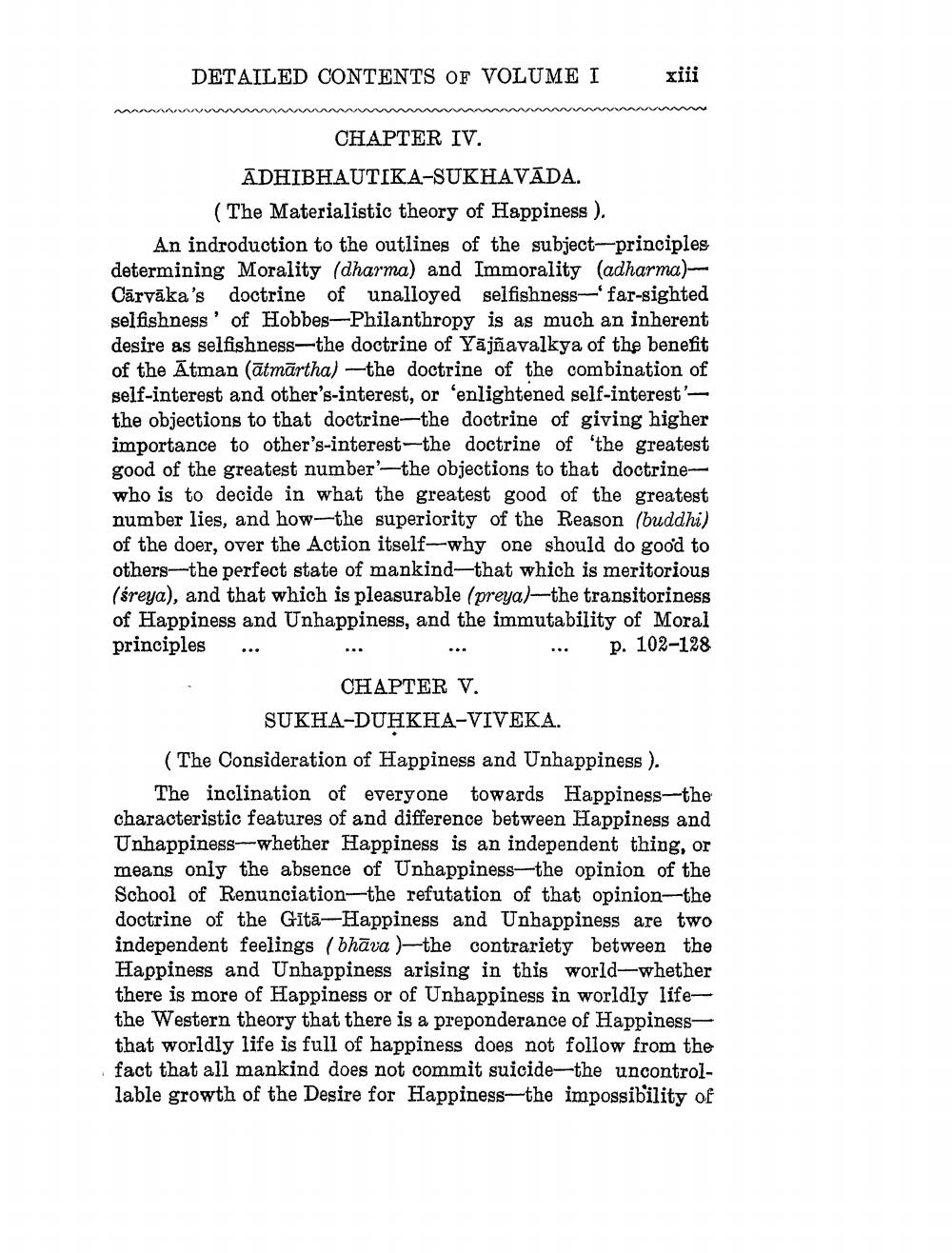________________
DETAILED CONTENTS OF VOLUME I
xiii
CHAPTER IV. ADHIBHAUTIKA-SUKHAVĀDA.
(The Materialistic theory of Happiness ). An indroduction to the outlines of the subject-principles determining Morality (dharma) and Immorality (adharma - Cārvāka's doctrine of unalloyed selfishness--' far-sighted selfishness' of Hobbes-Philanthropy is as much an inherent desire as selfishness-the doctrine of Yājñavalkya of the benefit of the Ātman (ātmārtha) --the doctrine of the combination of self-interest and other's-interest, or enlightened self-interest' the objections to that doctrine-the doctrine of giving higher importance to other's-interest-the doctrine of the greatest good of the greatest number'—the objections to that doctrine-- who is to decide in what the greatest good of the greatest number lies, and how-the superiority of the Reason (buddhi) of the doer, over the Action itself-why one should do good to others--the perfect state of mankind-that which is meritorious (śreya), and that which is pleasurable (preya)--the transitoriness of Happiness and Unhappiness, and the immutability of Moral principles ...
... p. 102-128 CHAPTER V.
SUKHA-DUHKHA-VIVEKA. (The Consideration of Happiness and Unhappiness ).
The inclination of everyone towards Happiness-the characteristic features of and difference between Happiness and Unhappiness--whether Happiness is an independent thing, or means only the absence of Unhappiness-the opinion of the School of Renunciation-the refutation of that opinion the doctrine of the Gītā-Happiness and Unhappiness are two independent feelings (bhāva )-the contrariety between the Happiness and Unhappiness arising in this world-whether there is more of Happiness or of Unhappiness in worldly lifethe Western theory that there is a preponderance of Happinessthat worldly life is full of happiness does not follow from the fact that all mankind does not commit suicide-the uncontrollable growth of the Desire for Happiness-the impossibility of




